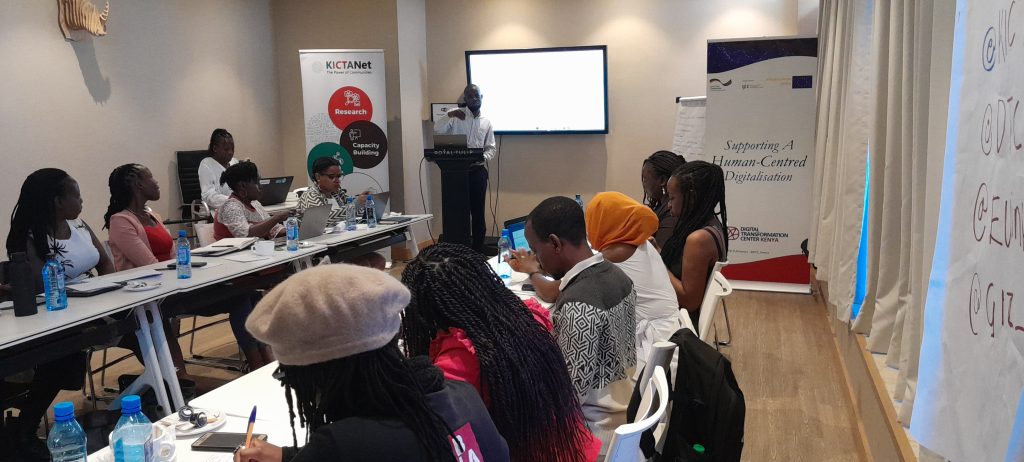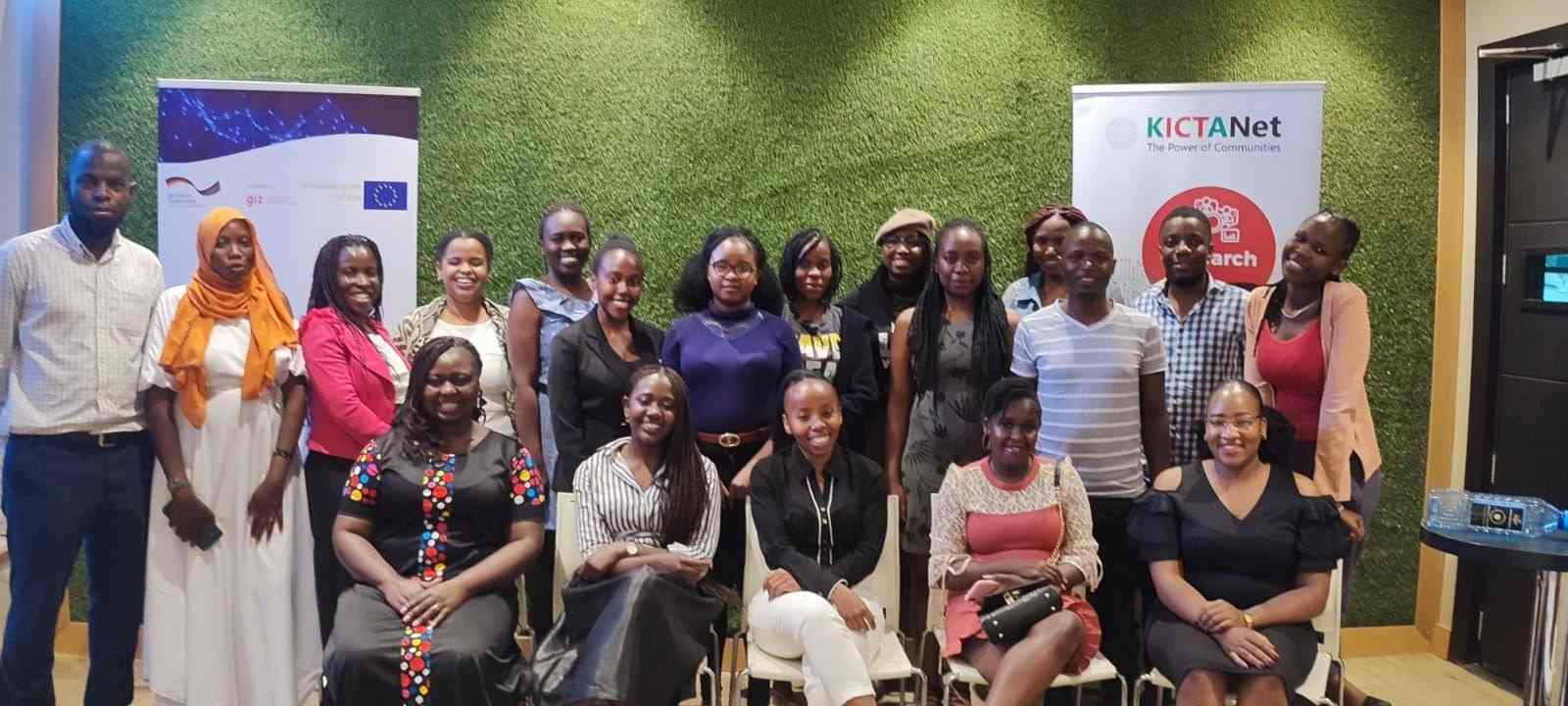The second day of the Training of Trainers on Women’s Data Protection and Privacy workshop focused on the legal provisions of data protection and privacy. Mercy King’ori from the Future of Privacy forum opened the session with a discussion on the data protection principles from Act 24 of 2019, also known as the Data Protection Act.
Your Data is Breached: What Now?

Meshack Masibo, KICTANet’s Legal Fellow on Data Protection and Privacy, walked the Trainers through what they can do when a data privacy violation occurs.
One option is to complain to the Office of the Data Protection Commissioner (ODPC) as provisioned by the Data Protection Act 2019 and the Data protection regulations of 2021. This presentation taught us that reporting data protection violations are a straightforward and accessible process.
You can make a report orally, via electronic means such as emails, complaint management information system, or any other appropriate means you are comfortable with.
Another option for legal redress is filing a court case if the situation calls for it.
What is The Right Process for Your Data Protection Violation Case?
Meshack pointed out that the right channel for different cases depends on the desired outcome. Do you want to raise public awareness, or would you like to see the perpetrator face criminal consequences? Do you instead want compensation?
If you want compensation, Mr Masibo advises filing a complaint at the ODPC or a petition in court. We learned how to file a complaint on the ODPC website. On the other hand, if you want to initiate criminal proceedings against the offender, it is advisable to file a police case.
There are instances when a victim chooses to make a public statement instead. Mr Masibo informed the workshop that they could file a Constitutional Petition on Article 31 and seek for the Court to make a declaration of rights under Article 23 of the Constitution of Kenya, 2010.
Cynthia Chepkemoi, High Court Attorney and Data the Data Privacy Council, concluded the trainer presentations with a lesson on Intersectionality Issues with data privacy. The term coined by Kimberlé Crenshaw in the ‘80s describes how many people have to wade through layers of bias; because people can hold more than one oppressed identity. Intersectionality also plays a role online.
The topics Ms. Chepkemoi covered as the session was winding down included the data protection challenges in the digital space and case studies on data protection and privacy.
Angela Minayo, KICTANet’s Women and Minority Groups Digital Rights officer, closed the meeting. She invited everyone to attend the unveiling of the 5th Module of the Digital Enquirer Kit on tackling Online Gender-Based Violence. The event will take place tomorrow, Oct 28.
KICTANet hosted the Training of Trainers on Women’s Data Protection and Privacy workshop. This workshop is a partnership with the Digital Transformation Centre Kenya (DTC), the German Agency for International Cooperation (GIZ), and the EU delegation to Kenya.




